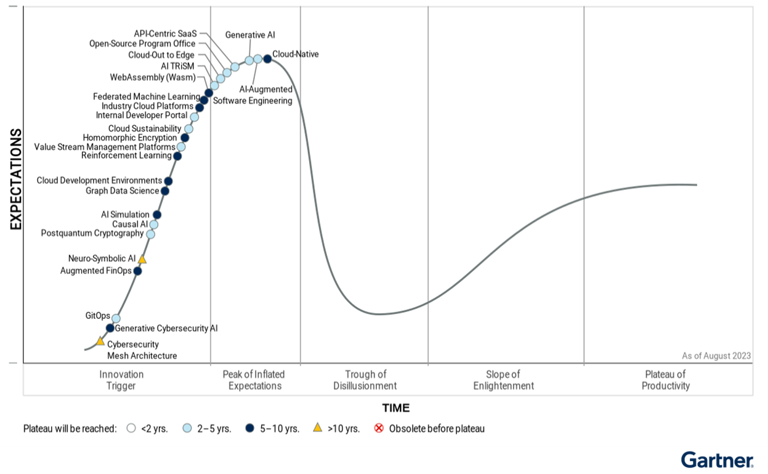Our reflections on GenAI in 2023
I know what you’re thinking… “not another article on AI”…
In the short time that Generative-AI has been with us (pretty much exactly just a year), it’s made quite a noise, that much we all know. But that’s for a very good reason - it truly is a world-transforming technology, regardless of whether you’re in the love-it or hate-it camp.
As I write this, the latest instalment in the turmoil at OpenAI (the world’s leading organisation for generative AI, and the name behind ChatGPT) continues to play out. This is the stuff of Hollywood script writers’ dreams, and perhaps we shouldn’t be surprised if this drama turns into a movie blockbuster once the dust has settled - after all, most of the world’s most significant non-fiction events have been dramatised for the big screen at some point; war (including invention of the atomic bomb), the Apollo missions, the Wright Brothers’ invention of flight, political events and more, and it’s not unreasonable to consider the genesis of GenAI alongside these.
Plenty has been written already about the possibilities offered by GenAI, but the one aspect I do want to call out is that we’re really now starting to see a proliferation in ‘tier 2’ services built atop the (typically) GPT foundation. A year ago we were all excitedly trying to see just how smart the new kid, ChatGPT, was, and getting excited about the possibilities.
In recent months however, many of us have come to realise that interacting with a chatbot, via it’s specific user-interface, isn’t always the way we want to consume the technology. It’s too deliberate and overt, and not slipstreamed into making our everyday lives easier. This is illustrated perfectly by the Gartner Hype Cycle for Emerging Technologies, showing GenAI right at the ‘Peak of Inflated Expectations’, and a few months on from the August 2023 publication, probably now descending into the ‘Trough of Disillusionment’;

Gartner Hype Cycle for Emerging Technologies (August 2023)
To counter this, there’s been an increasing move towards embedding GenAI technology (often, but not always OpenAI’s GPT models) into tools we’re already using in our daily work and lives. Microsoft have very recently made Copilot widely available, directly inside Microsoft 365 (including Outlook, Teams, Word, Excel, etc), Bing search, and even the Windows desktop itself, placing it right of the heart of millions’ everyday working lives. Every large tech vendor is doing similar, and pretty much every online software-as-a-service platform is enriching their product with embedded AI - you can’t fail to have noticed new buttons and popups advertising this everywhere you look.
Making predictions in this fast-paced industry can be fraught with risk, but I think we can be certain that over the coming months and year, we’ll see an increased recognition of practical everyday applications for GenAI, and find ourselves entering the ‘Slope of Enlightenment’ as the tooling genuinely slipstreams into making our daily professional and personal lives more productive.
The naysayers will say this is “the machine” already covertly infiltrating us and plotting the demise of humanity, and we’re right to be cautious about using GenAI in a responsible way of course (which, if the rumours are true, is the cause of the current OpenAI board drama). But we cannot and should not close the doors to something so truly transformative - where would we be had we not embraced James Watt’s revolutionary steam engine or Thomas Edison’s new-fangled lightbulb?

